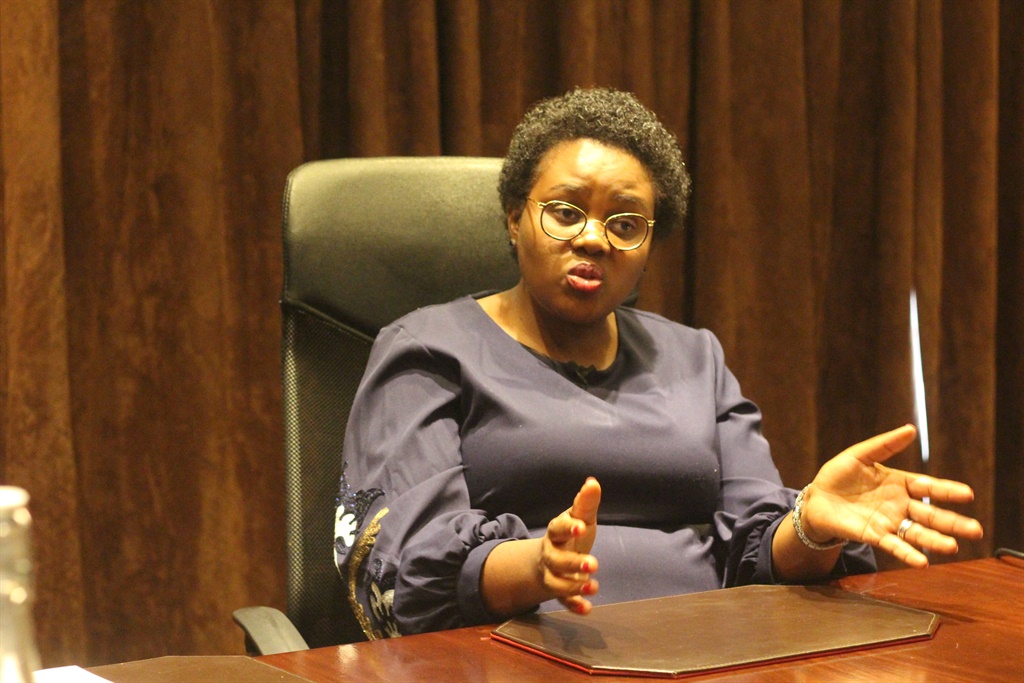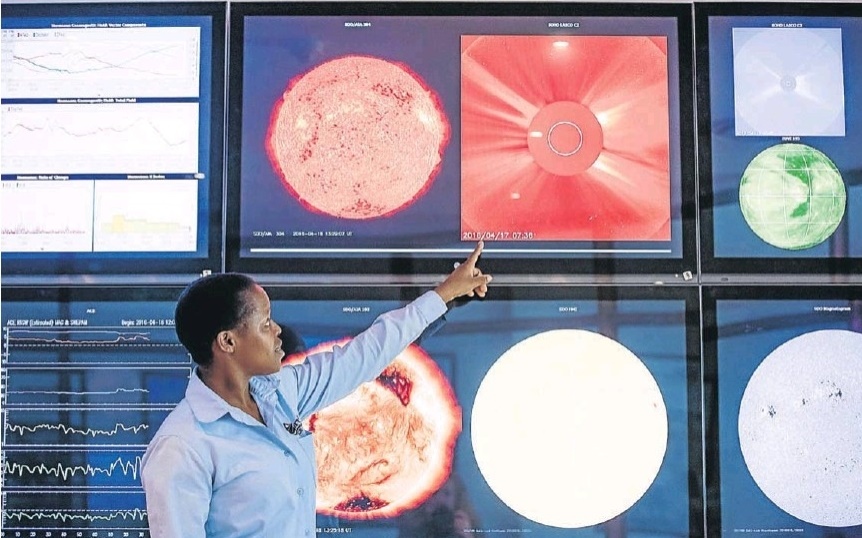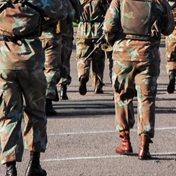
Women need to be able to fight for their work to be acknowledged in order to stay ahead of the game. This was expressed by Science and Technology Minister Mmamoloko Kubayi-Ngubane, who sat down with City Press last week for an exclusive interview ahead of International Day of Women and Girls in Science. The day, which takes place on February 11, marks the celebration of women and girls across the world who have made and continue to make their mark in the world of science, despite the numerous challenges which they face.
The United Nations states that the gap that exists between men and women in this field is still glaring, despite the significant contributions that women have made.
Unesco draws a startling picture, saying that globally, only 30% of researchers are women. Unesco’s Institute for Statistics states that of the total researchers in South Africa, 45% of them are women, and although women are enrolling at institutions of higher learning, very few pursue careers in research.
Kubayi-Ngubane is adamant that the only way to close this gap and increase the representation of women in the fields of science is to ensure that mentorship programmes are prioritised, and that women are given the support structures in order to pursue their post-doctorate qualifications, something that the current systems do not fully allow.
One of the first engagements that the minister had when she was appointed to the post last year included an event to which she was invited through social media. Here, she experienced her own patronisation.
“I got there and two white men with grey hair came up to me and said, ‘Oh you’re the minister?’ I replied and said, ‘Yes, I am the minister of science of technology’. They said that the previous ministers had sat on their board as an honorary member and depending on how I spoke at their engagement that day, I ‘could’ also become an honorary member. I told them that actually I wasn’t sure if I even wanted to be on their board, and that they should be asking me if I wanted to be a member,” she says.
“The environment is not only about young girls saying that they are struggling to be among men in places of work. You see it at ministerial level, the perceptions, the myths, the fact that we had a chief executive of an engineering body who was fired because of vocally saying women are not supposed to be in the engineering field. That tells you about the environment,” she says.
In September last year, the South African Institution of Civil Engineering terminated Manglin Pillay’s position as chief executive after he wrote a piece titled ‘Out on a rib’, in which he questioned the place of women in society. He attributed the low rate of women in senior positions towards women who “prefer to work part-time or dedicate themselves completely to child rearing or pursuing other meaningful exploits generally related to caring”.
Kubayi-Ngubane believes that closing the gender gap and furthering the contribution of women in science is a long road, but needs to be driven by both men and women.
“It’s all about how we go about ensuring that we have a society that is different from the 1950s. We have a society that promotes gender parity and we should not pay lip-service to it. But we must be genuine about it. We must be able to drive it consciously because transformation doesn’t happen automatically,” she says.
The South African National Space Agency was recently chosen by the International Civil Aviation Organisation as one of only two regional centres that will provide services including solar storm forecasts and warnings, to the global aviation sector.
Kubayi-Ngubane believes it is a significant achievement for the South African science space, but what is even more significant is that the project is being led by a black woman, space weather practitioner Mpho Tshisaphungo.
“When the news came through, it was a very exciting moment to know that the centre in Hermanus has been recognised as the centre for space weather for aviation. The second space weather centre has been awarded to Russia and China jointly. What it means is that it looks at science becoming a tool responding to challenges in society. Now we become part of the solution for aviation and the airspace,” she says.
The minister hopes that the space agency’s appointment will provide a platform to bring on board more young scientists into the training and development fields of the project.
Another significant role to which the minister was recently nominated was that of a member of the artificial intelligence council organised by the World Economic Forum’s Centre for the Fourth Industrial Revolution.
Kubayi-Ngubane now forms part of a panel of global leaders tasked with leading policy and development related to the future and sustainability of artificial intelligence, something that she is looking forward to.
“What it says to us is that South Africa is being recognised. We didn’t lobby for it. I had feedback that a number of countries were bidding and running campaigns to become a part of the council and yet we didn’t do that. We got recognised for our work and that is extreme news.”
The appointment is for two years and it is non-transferable.
“We will meet once a year and have video conferencing three times a year, and we will look at advising global communities on policies and governance on the artificial intelligence environment. Looking at things like enhancing AI and making sure that it doesn’t become restricted or restrictive for countries. Also, to say how the world responds to AI in the future. It is very exciting, and it will shape the work in AI going forward,” she explains.
Kubayi-Ngubane, who is understanding of the challenges that girls face while trying to cement their place in the fields of research and science, says that more programmes with private partnerships aimed at mentoring young girls will greatly propel girls into developing their roles.
“Part of the work that we have to do going forward intensively is focusing on those partnerships. We do have partnerships globally, but not on mentorship programmes specifically. So you’ll find we have partnerships in funding, in running projects, but to have a focused programme on mentoring is something we should have. That’s the area I was to see going forward,” she says.
| |||||||||||||
| |||||||||||||




 Publications
Publications
 Partners
Partners









